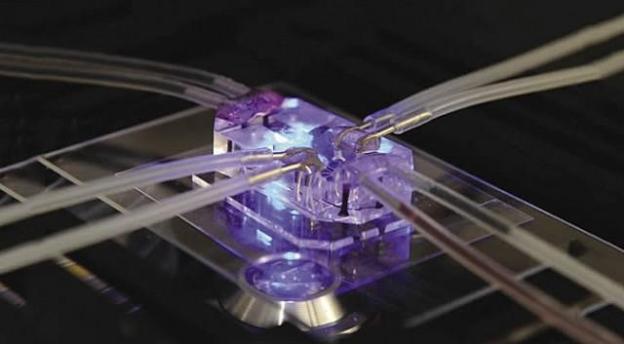
The folks at PETA, it’s time to rejoice. A new technology by a team of Harvard University bioengineers could soon replace animal testing with organ-simulating chips. Programmed to replicate the functionalities of human organs, the team has developed several organ-on-a-chip variations so scientists can perform experiments using these chips instead of on live animals.
At the moment, researchers at Harvard’s Wyss Institute have come up with lung-on-a-chip, heart-on-a-chip, and most recently, gut-on-a-chip. The miniature simulators may be tiny, but all pack the full features of each organ represented, including live human cells growing within the chip. This involves the team replicating flexible human membranes to mimic a real organ system that cells require to survive.

The chips can be readily tested like the same way experiments are conducted on human or animal subjects minus the need to prep. With the transparent chips, scientists can also observe the reactions to chemicals with ease and record how fast the effects take place. Another benefit to the chips include testing medicines for human diseases that do not have animal analogs, such as Crohn’s disease, reports Extreme Tech. Instead of sampling human subjects, which requires a large investment and is extremely high risk, the chips could bypass all these economical issues.
“It is very common for drugs to pass animal testing, but then fail on humans,” writes Extreme Tech’s Sebastian Anthony. “Removing animal testing from the equation would save money and time, and also alleviate any ethical concerns.”
The only issue is, of course, if the chips become more developed on a consumer-focused level — including the cosmetics industry. Sample products are applied to animals to check for any reactions at all, so pinpointing just one organ of the entire human body system could prove to provide limited results. Still, any alleviation to an already controversial practice is an innovative step toward the future. As long as no one is endangered along the way, we look forward to more types of organ-on-a-chip to see the kinds of results they can show under medicinal experiments.
Watch the video below to learn more about organ-on-a-chip technology by the team at Wyss Institute.


